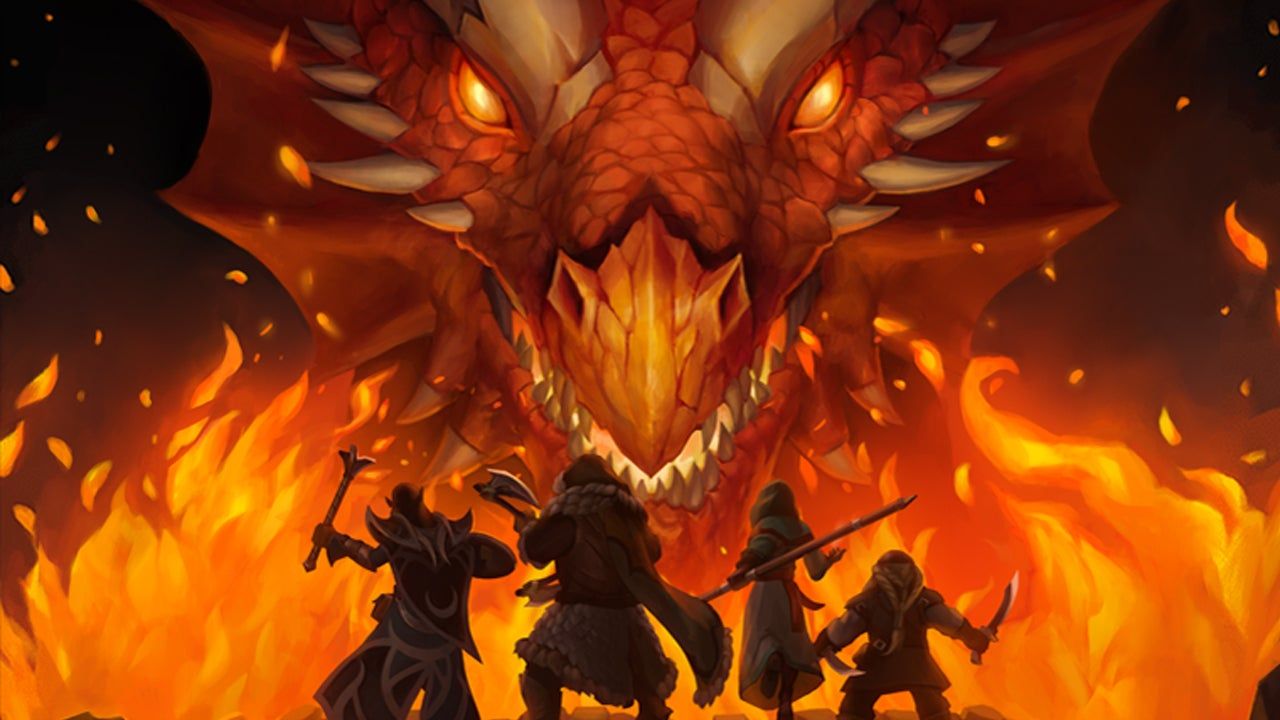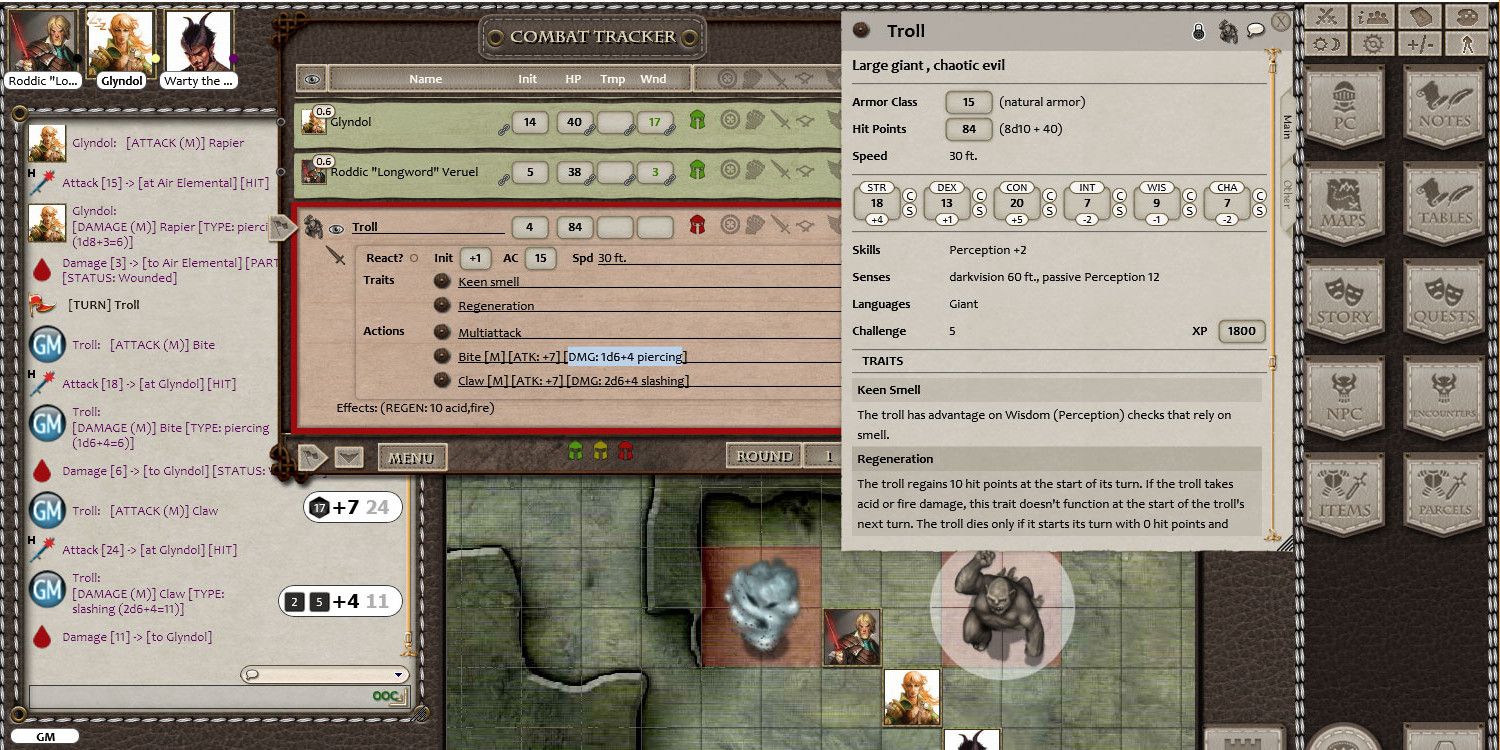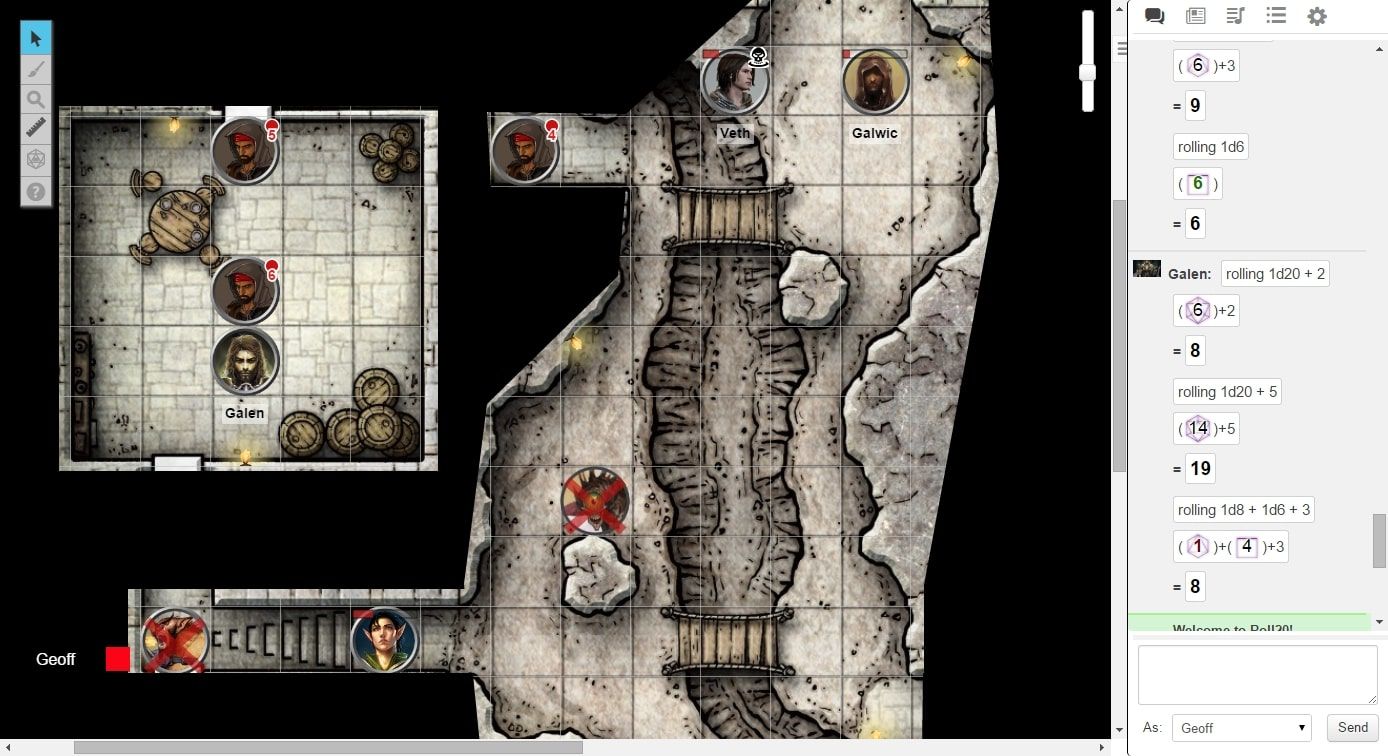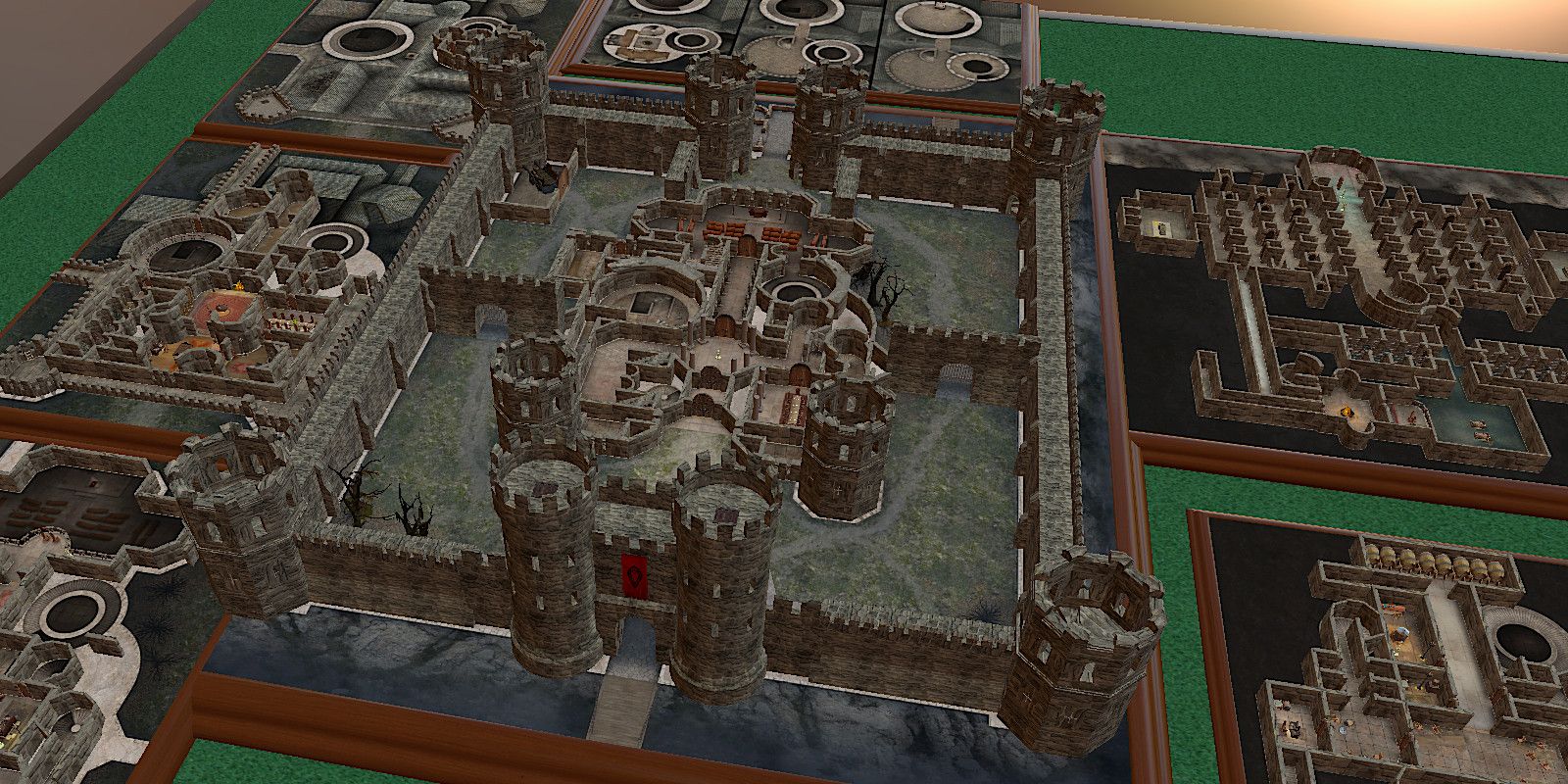When most people of Dungeons & Dragons, they probably think of a group of people huddled around a table with snacks and dice piled high as the Dungeon Master sets up the next encounter. However, more and more players are turning towards the Internet to play, using online simulators to play with their friends.
Online simulators help alleviate the issues of working around player schedules or different time-zones. And for the DMs, online simulators offer tools that streamline the world and dungeon building processes, making it easier to create a campaign than ever before. However, not all of these online D&D simulators are created equal, and each has its own advantages and drawbacks.
Fantasy Grounds
Fantasy Grounds is perhaps the best online simulator to play Dungeons and Dragons. Fantasy Grounds has official licenses from Wizards of the Coast, which means official campaigns, characters and enemies (as well as Dungeons and Dragons-specific rule sets) are available. New players to D&D will feel at home, as the system's UI displays everything onscreen that players would normally have to keep track of on their own character sheets or notes. Dungeon Masters will also appreciate the variety and complexity of tools at their disposal, including various templates to help run their sessions.
On the other hand, learning exactly how these tools work could pose a challenge for DMs. Fantasy Grounds offers many tools and gadgets that allow DMs to build their worlds, but the software itself is very dense. Taking the time to learn how to use it effectively can take hours, which might be off-putting to DMs who already put hours into session preparation.
On top of this, Fantasy Grounds can cost players a significant amount of money. A single copy costs $40, and the four-pack cost $120. Players will also have to consider purchasing campaigns, as well as character, class and monster modules. If you and your group are willing to pay for it and take the time to learn how to use it, though, you'll be rewarded with seamless D&D sessions and powerful world-building tools.
Roll20
Roll20 is another immensely popular online simulator, and for good reason: it's free to use for all players. The entire system is available right from the start, though there is some paid content from other users and other specific game compendiums. Roll20 offers most of what players and DMs need for creating and playing a D&D session. There is a straightforward design tool for maps, dungeons and towns, as well as the ability to create and name multiple simple commands for actions like dice rolling that will keep session gameplay interrupted. For the DMs who enjoy immersive campaigns, there is even a jukebox system that plays music on cue.
While Roll20 is great, the fact that it is not licensed by Wizards of the Coast means it lacks a lot of official D&D material. Unless players choose to purchase specific game compendiums, D&D-specific characters, races, monsters and items will either have to be recreated in Roll20 or you'll have to find suitable replacements.
Tabletop Simulator
Tabletop Simulator is another great D&D online simulator. Since it's available on Steam, getting a session together is incredibly easy. Tabletop Simulator also has takes the "tabletop" part of D&D seriously, displaying games with a virtual tabletop that helps players visualize towns and dungeons very easily.
While it's another paid platform, it's much cheaper than Fantasy Grounds at $20 for a single copy and $60 for a four-pack. Steam also has sales, so you might even be able to get it on sale. Plus, Tabletop Simulator's biggest asset is probably the Steam Workshop. While players can purchase DLC (effectively complete board games that run through Tabletop Simulator), the Steam Workshop offers up a hoard of downloadable assets and miniatures to use in campaigns for free.
However, part of what makes this platform great is also what detracts from its overall experience. Tabletop Simulator always reminds the player that, in the end, they are just rolling dice and playing a game. The game's visuals keep it grounded as a tabletop RPG, whereas Fantasy Ground and Roll20 keep game mechanics going on behind the scenes so that players can stay immersed in the action. It'll also take some time for everyone to become accustomed to Tabletop Simulator's controls, and setting up games may take some time. Overall, though, Tabletop Simulator is a great way to relax and play through some quick one-shot sessions with friends.




